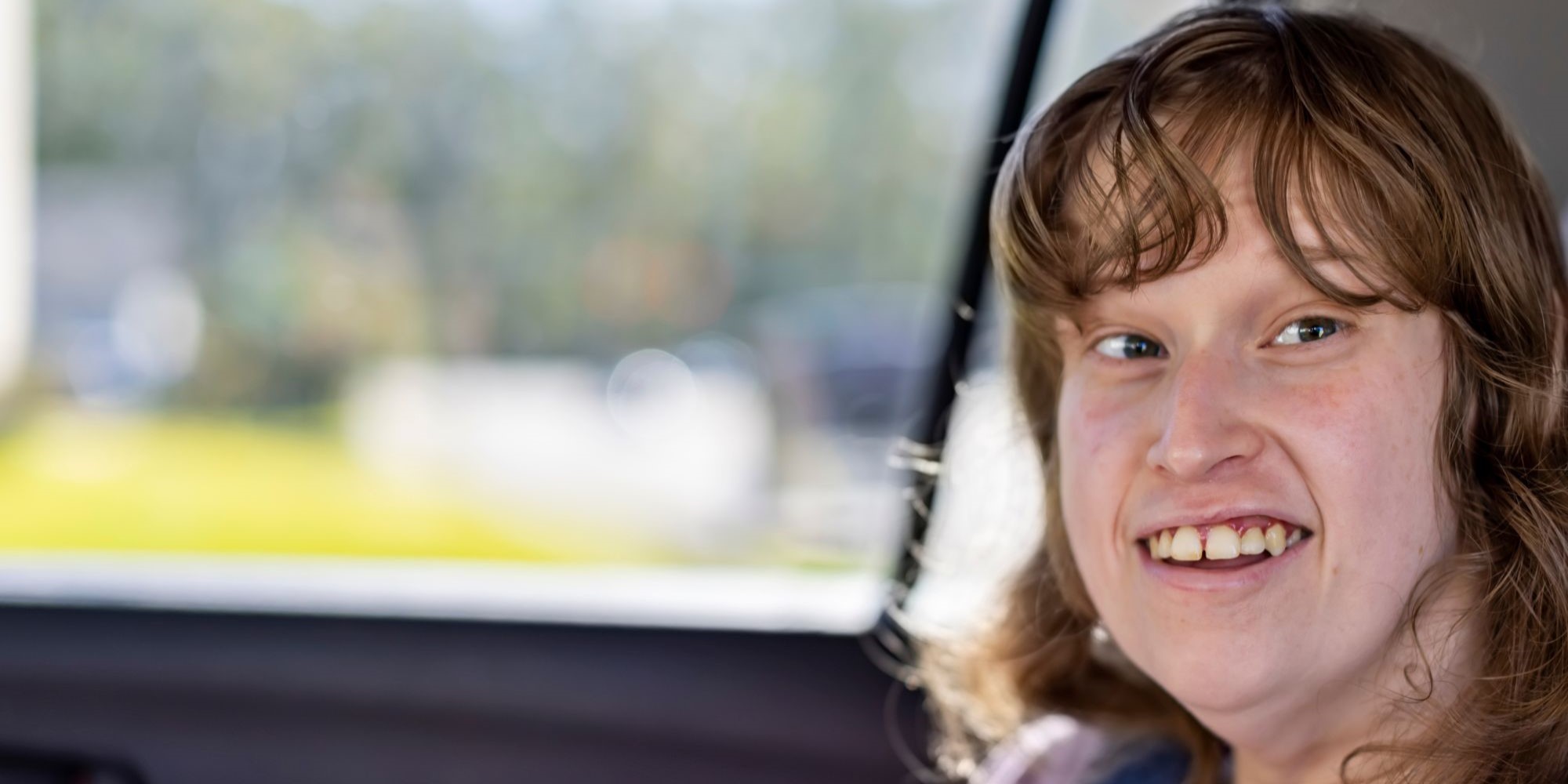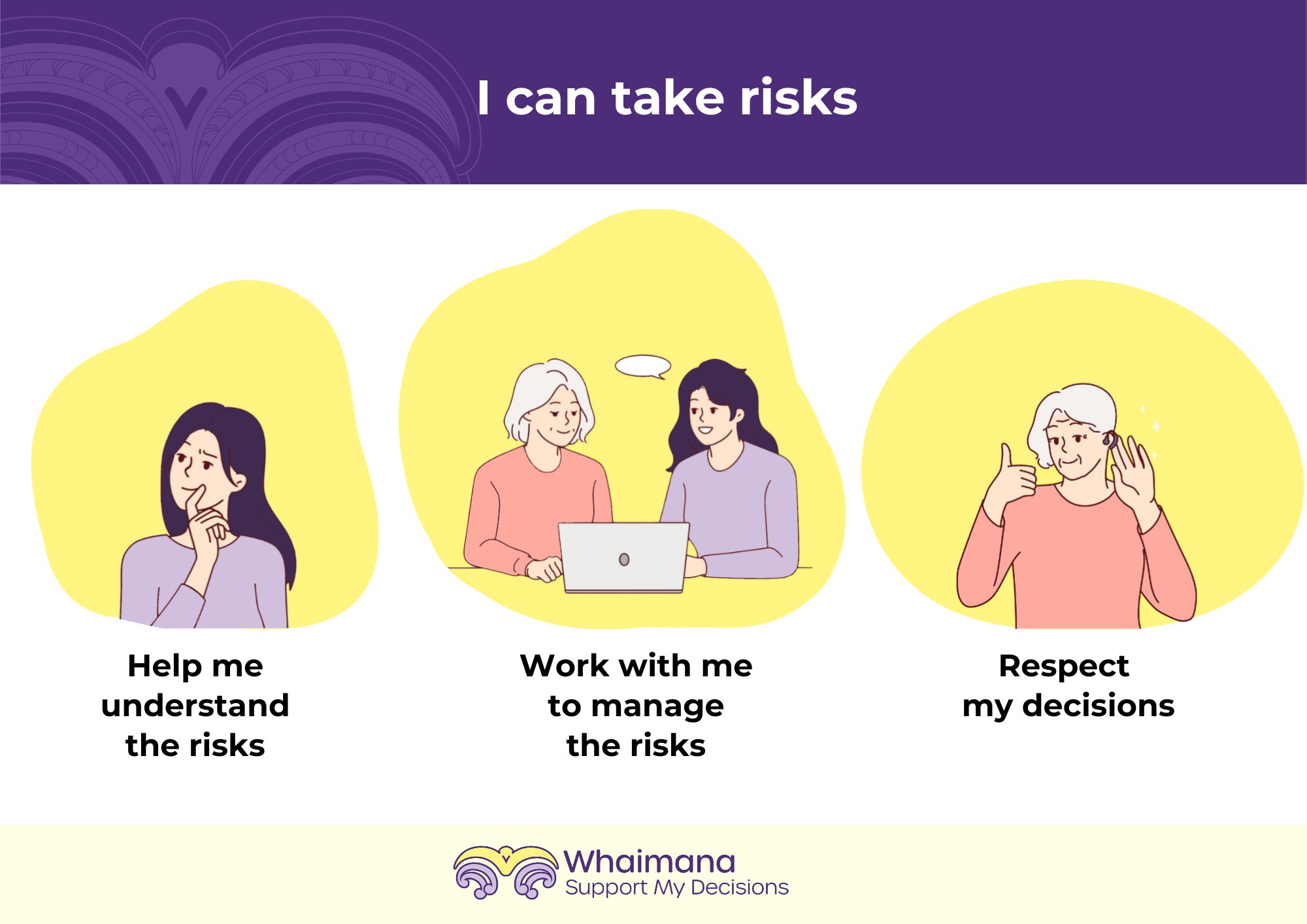Work in Progress! We are building a new website about supported decision-making. We haven't finished checking the content yet. We want to make sure everything is clear and correct before we share it. Please come back soon to see the finished website.
Everyone has a right to take risks
People should be supported to live the life they choose, even if there are some risks involved. This is called the dignity of risk.
Risk is part of making decisions
- There is usually a chance that things might go wrong when we make a choice. This can’t be totally avoided.
- We can learn from our mistakes.
Risk is part of supported decision-making
- The supporter helps the decision-maker understand the good and bad things that may follow a choice.
- The decision-maker and supporter try to come up with ways to reduce the risk while still helping the person achieve what is important to them.
- If the decision-maker understands the good and bad things that might happen, then the supporter should respect the decision.
- The person’s choice should only be ‘over-ruled’ if there is an unreasonable risk that can’t be understood and managed. For example, a supporter can’t support a decision that would break the law.

Belinda’s story
Belinda talks with her support worker, Kate, about her holiday plans.
Belinda wants to visit Hobbiton. She loves the Lord of the Rings movies. She wants to go on her own. She will have to go on a long bus trip and stay overnight.
Kate is worried. Belinda usually needs help with cooking and money. Kate knows Belinda is very friendly and trusting.
At first, Kate thinks she should tell Belinda that going alone is a bad idea. But Kate remembers that she can help Belinda understand the risks and options.
They talk about why Belinda wants to travel alone. Belinda says she always goes on holiday with her parents. She wants to show she's grown up.
Kate and Belinda talk about ways to make the trip safe. They come up with two ideas:
-
- A package tour with a group
- Going with her cousin
They look at the costs and details. Belinda chooses to go with her cousin. She will travel without her parents, which makes her happy.
Find out more
- “How we can make it work external”. This booklet from the Decision Agency helps decision-makers and supporters work through risky decisions together.
- “Enabling risk: Putting positive first external”. This is an online module for disability support workers from La Trobe University.
- “Supported Decision Making and Risk external”. This video talks about how supporters can enable risk for people living with dementia. The Cognitive Decline Partnership Centre made the video.
